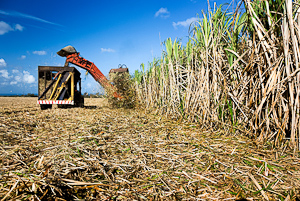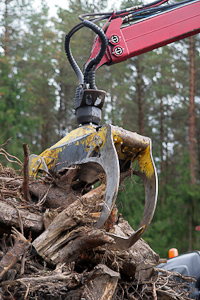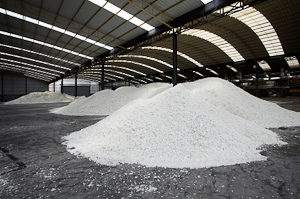Biomass for biofuel

Biomass is the matter that makes up the Earth’s living organisms. It also refers to organic material that stores sunlight in the form of chemical energy.
Many people associate the term biomass with renewable energy — often referred to as biofuel. Biomass sources for biofuels include wood, wood waste, straw, manure, sugar cane bagasse, and many other byproducts from a variety of agricultural processes. These biofuels have and continue to be a major source of energy in much of the developing world.
In the developed world, there are many who advocate the use of biomass for energy, as it is easy to grow and readily available. In contrast, fossil fuels — such as petroleum, coal, and natural gas — take millions of years to form in the Earth, have finite supplies, and are subject to depletion as they are consumed.
Biomass for biobased products

In the effort to become less dependent on fossil fuel and its corresponding rising costs, there’s a growing global market for products and packaging made from biomass. These products are referred to as biobased.
Biobased products are defined by the U.S. Secretary of Agriculture to be commercial or industrial products (other than food or feed), that are composed, in whole or significantly, of biological products or renewable domestic agricultural materials (including plant, animal, and marine materials), and/or forestry materials.
So much waste is wasted!
Every year tremendous amounts of biomass are destroyed or mismanaged — unharvested or uncleared brush in forests, cleared brush that is not collected and utilized, post-harvest chaff, sugar cane stalks (bagasse), wheat straw, bamboo and rice fibers, and much more.
Making use of these natural resources as feedstock for biobased products is a win-win solution. Recovering agricultural waste for packaging eliminates the need to dispose of it by burning, burying or letting it rot in fields and wetlands. And utilizing biomass reduces our need to import foreign oil and look for new sources domestically.
Better for the environment

Products and packaging made from biomass are considered carbon neutral. As plants grow, they absorb carbon from the atmosphere. They release the same amount of carbon when burned or composted.
Plus, biobased products — such as those made from sugar cane bagasse — can actually help reduce greenhouse gases in our environment. For example, as sugar cane plants grow, they absorb CO2 already present in the atmosphere. Utilizing the salvaged waste fibers left over after harvest instead of burning them prevents the release of CO2 and pollution into the air.
